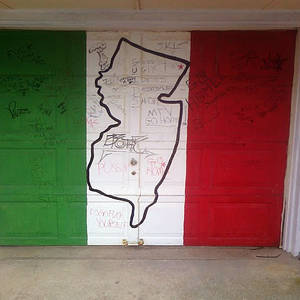In a recent two-day conference at the John D. Calandra Italian American Institute, dozens of scholars from the U.S., Italy and elsewhere looked into the global mafia phenomenon from a multi-disciplinary perspective. The guest of honor was Italy’s former Interior Minister Vincenzo Scotti, whose book about the relationship between the Mafia and the State in Italy has just been translated into English.
You chose: stereotype
-
-
Netflix launches "Lilyhammer," a series made for Norwegian television. In it you'll find almost every known stereotype of Italian/American culture that you can imagine.
-
Facts & StoriesSeveral Italian-American organizations are staging an anti-defamation campaign against the videogame "Mafia II" on the ground that it offends and stereotypes Italian Americans as mafiosi. Here we present the argument against the game through the words of Andrè DiMino, Chief Media Executive and Immediate Past National President of UNICO National. In the next few days we shall investigate the opposing viewpont.
-
Most Italian-Italians, the ones from Italy, that is, always seem to be curious as to how we Italian-Americans are perceived by others in America. With all the news they’ve heard of Italian stereotypes in America, like the ones put forward in “The Godfather,” “The Sopranos,” “Mafia Wars,” and “The Jersey Shore,” I understand what they expect.
-
I am not sure why mimicking the guido style is any better or worse than folks in a previous generation trying to be like James Dean or the pre-Godfather Marlon Brando. It is one generation’s rebellion against the previous generation. And it was the disobedience and unruly behavior, now “forgotten”, that helped to make Sinatra an icon for a particular generation. This rebellion is needed to move toward establishment of identity as a new group that is independent from the previous generation. It is outrageous that anyone should claim a specific topic is forbidden ground for interchange. It is in the reasoned discussions about such topics as guido culture that can help us as a community reach a consensus.
-
Why has MTV produced a youth culture reality show that showcases Guido and Italian identity? Guido offers a symbol that specifically identifies the brand; Italian ethnicity makes the brand more salient. Guido combines a commodified youth party culture with a style that has street culture roots. [...] Guido is a struggle for recognition and respect by an age fraction that privileges consumption rather than formal education, reflecting class differences in an ethnic culture that continues to evolve in metropolitan New York City and throughout the Northeast. [...] Youth may turn more to ethnicity to authenticate their cool and preserve privileged insider status as in Hip Hop. However, this is denied by a vocal anti-defamation position that reduces Guido to a category of ethnic prejudice. It is my view that this slights a vernacular Italian American culture that ironically is better defined as a challenge to generalizations and stereotypes that underpin historic ethnic slurs.
-
'Guido' is a phenomenon that demands attention. If Italian American social advance were as real, as secure, and as substantial as many Italian Americans believe it to be (I am among these believers), then it would seem not only not harmful, but indeed positively beneficial and necessary, to examine, to discuss, and to reflect upon the power of such a new word. As to the youths of Jersey Shore, they are playing grotesques, like all minstrel-show caricatures. They are amusing—indeed, more so than most clowns with sad eyes. They have clearly found their moment and clearly touched a nerve. To the term Italian American, which has carried so many strings of dollar bills and ropes of sausage, they have added a new chain of fetishes – a tanning bed, a tube of gel, an old summer thong bearing the legend “I Love the Situation.”
-
What is this guido thing? Is it pure caricature put on us by the outside world, or do we have an active part in it? Is it lifestyle or demeaning stereotype? A (former guido) brother who now teaches environmental engineering, and a (longtime anti-guido) sister who is now an actress, writer and filmmaker, look back.
-
An Italian/Australian (?) trash movie parody reaches 2.000.000 views on YouTube...
-
An Italian tries to conquer American reality TV with charm, passion and oh yes, a kiddie pool full of spaghetti and meatballs
































![Mafia 2 E3 2010 Made Man Trailer [HD]](http://newsite.iitaly.org/sites/default/files/styles/article-square-thumbnail-visual/public/media-youtube/I3kNM_eBaK8.jpg)





